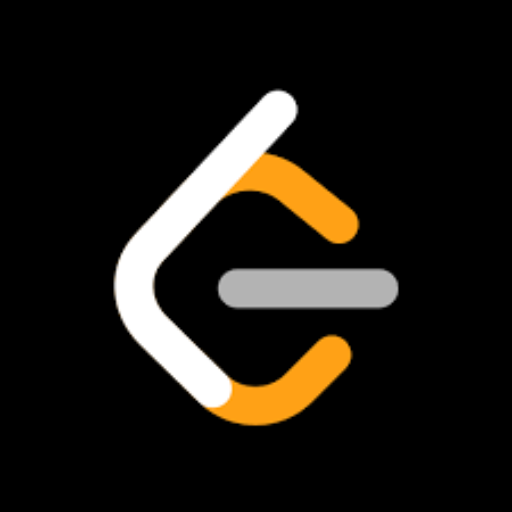OCaml Tutor-OCaml and TypeScript assistant
AI-powered OCaml & TypeScript tutor
How do I implement recursion in OCaml?
Explain pattern matching in OCaml
Why use OCaml for functional programming?
Help debug this OCaml code snippet
Related Tools
Load More
OCaml Genie
Troubleshoot your OCaml.

Rust Tutor
An expert in Rust adept at explaining code and teaching you the language.

Micro Econ Tutor
Helps with microeconometrics revision, explains concepts, aids in exam prep.

Introduction to Complex Analysis Tutor
A patient tutor for complex analysis, offering detailed explanations.

Math Tutor
Your personal Math teacher

A Level Tutor
A level Tutor trained for AQA, Edexcel and OCR exams
20.0 / 5 (200 votes)
Overview of OCaml Tutor
OCaml Tutor is a customized educational tool designed to assist learners in mastering OCaml programming, with an emphasis on basic syntax, data structures, and type theory. Its main goal is to provide users with detailed, personalized assistance, fostering understanding through comparison with other languages like TypeScript. OCaml Tutor is structured to support an informal, yet deeply informative, interaction—helping users navigate coding concepts and debug issues in real-time. It focuses on engaging learners by asking them to share their progress and goals in each session, tailoring responses to individual needs and providing more relevant, evolving support as users' knowledge develops. For instance, if a user starts with basic function declarations, OCaml Tutor will adjust responses accordingly to introduce more advanced patterns like polymorphism or recursive functions when the user is ready.

Core Functions of OCaml Tutor
Syntax Clarification and Comparison
Example
Explaining the differences between pattern matching in OCaml and switch-case statements in TypeScript.
Scenario
A beginner asks about how to match complex data types in OCaml. OCaml Tutor provides a detailed breakdown of OCaml's pattern matching, followed by a comparison to how TypeScript handles similar situations, like with switch-case or if-else statements. This helps the learner grasp OCaml syntax while understanding its relation to familiar TypeScript constructs.
Assistance with OCaml Data Structures
Example
Guiding a user through the creation and manipulation of lists and tuples.
Scenario
The user is working on a project requiring manipulation of tuples and lists in OCaml. OCaml Tutor explains how to construct, iterate, and modify these data structures, walking through examples of both simple and nested lists, and comparing them to arrays and objects in TypeScript. The user gains confidence in using OCaml's native data structures effectively.
Debugging OCaml Code
Example
Helping a user debug a recursive function that does not terminate as expected.
Scenario
A user writes a recursive function to traverse a tree structure in OCaml but encounters an infinite loop due to improper base case handling. OCaml Tutor analyzes the function step-by-step, identifying where the logic breaks and suggesting the correct base case. This troubleshooting not only fixes the current issue but also teaches the user how to approach debugging in functional programming.
Target Users of OCaml Tutor
Beginner OCaml Programmers
These users are typically students, early-career developers, or self-taught programmers who are new to OCaml and functional programming concepts. They would benefit from OCaml Tutor because it breaks down complex syntax and concepts in simple terms, offering direct comparisons to TypeScript or other familiar languages. This approach makes OCaml more accessible to beginners who may struggle with its functional paradigms.
TypeScript Developers Learning OCaml
Experienced TypeScript developers looking to expand their knowledge into OCaml's functional programming world. This group would benefit from OCaml Tutor's ability to compare OCaml constructs with those in TypeScript, allowing them to leverage their existing programming knowledge and quickly adapt to OCaml's syntax and functional style.

How to Use OCaml Tutor
Step 1
Visit aichatonline.org for a free trial without login, also no need for ChatGPT Plus.
Step 2
Choose your area of focus (OCaml syntax, data structures, or specific programming concepts). You can also explore TypeScript comparisons if you're learning both languages.
Step 3
Input your OCaml or TypeScript questions, code snippets, or general queries about programming. Be as specific as possible to receive detailed, tailored responses.
Step 4
Review the detailed responses, which will include explanations, example code, and guidance on common pitfalls or improvements.
Step 5
Refine your questions based on the responses, ask for further clarification, or try different programming scenarios to deepen your understanding.
Try other advanced and practical GPTs
Writing Assistant
Enhance your writing with AI precision

ElasticSearch
AI-powered data search and analysis tool

Elasticsearch Expert
AI-powered Elasticsearch insights and solutions

Image Enhancer 4K
AI-Powered 4K Image Enhancement

SebGPT
AI-driven expert for SEO & marketing

Newegg PC Builder
AI-Powered Custom PC Configuration.

Easy Gig Creator for fiver
AI-powered Fiverr gig content creator
Dustin's GMAT Q: Quant Master
AI-powered solutions for GMAT Quant success.

Dustin's GMAT RC: Preparatory Answer Trainer
AI-powered GMAT RC reasoning enhancer

力扣LeetCode刷题大师
Master LeetCode with AI guidance

LeetCoder
AI-powered coding and optimization

Leetcoder
AI-powered coding mentor for every challenge

- Code Debugging
- Code Optimization
- Learning Support
- Syntax Help
- TypeScript Comparisons
OCaml Tutor Q&A
What can OCaml Tutor help me with?
OCaml Tutor assists with learning OCaml’s syntax, data structures, and functional programming concepts. It can also provide comparisons to TypeScript for those learning both languages, helping you bridge your understanding between the two.
Is OCaml Tutor good for beginners?
Yes, OCaml Tutor is designed to help beginners with step-by-step guidance. It explains concepts in an easy-to-understand manner, offering detailed examples and clarifying OCaml’s more complex topics.
Can I use OCaml Tutor for debugging code?
Yes, you can paste your OCaml or TypeScript code to receive insights on errors, suggestions for fixing bugs, and ways to optimize your code. OCaml Tutor explains the reasoning behind its advice, helping you learn as you debug.
Does OCaml Tutor require prior programming knowledge?
Having some basic programming knowledge helps, but OCaml Tutor is beginner-friendly. It provides foundational guidance on OCaml and TypeScript, including simple examples that gradually build up to more complex topics.
Can I ask about both OCaml and TypeScript?
Absolutely! OCaml Tutor is built to help with both OCaml and TypeScript, offering comparisons and helping you grasp the similarities and differences between the two languages.